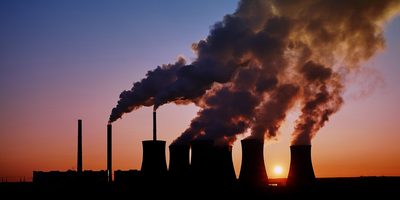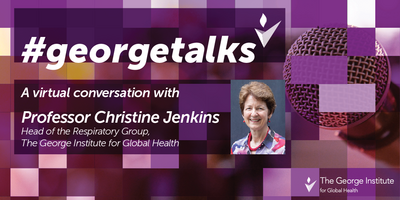
Looking after your lung health when bushfire smoke hits
We asked The George Institute for Global Health’s respiratory expert Professor Christine Jenkins about the health effects of exposure to bushfire smoke and how you can take steps to manage them.
What is smoke exposure doing to us?
Short term exposure to smoke is definitely not good for you. Various factors influence how you will be affected by this - some being how close you are to the smoke, how intense it is and how prolonged the exposure is. Your personal vulnerability is also important – if you have asthma or other types of lung disease you are more prone to breathing difficulty and coughing when you have smoke exposure.
What advice would you have to look after yourself?
Minimise your exposure to the smoke, stay indoors if possible and wear a P2 mask if you’re outside. If you have heart or lung disease it is especially advisable to stay inside. If you have asthma or other types of lung disease, be conscientious about taking your preventer medications. Don’t just rely on your reliever medication.
What is a P2 mask?
This mask has a filter that can remove most of the PM2.5 particles – the tiny particles that can damage your airways and be absorbed into your bloodstream. It must be fitted snugly over your nose and around your face and chin to be effective. Paper (typical blue “surgical”) masks are not effective in eliminating fine particles (or PM2.5s).
Is there a safe time limit?
Levels below 50 are generally considered safe, although ideally, they should be below 25. On a normal, clear spring day in Sydney, PM2.5’s average about 20 micrograms per cubic metre.
How big an issue is this smoke for people with respiratory problems?
For people with airways disease, lung disease or heart disease there is a significant risk of increased symptoms. It is especially irritating for people with asthma and chronic obstructive pulmonary disease (or COPD), as these diseases cause the airways to be inflamed and the smoke can aggravate them quite substantially. Long term smoke exposure over months and years is not good for your heart or lungs whether you already have lung disease or are a healthy person.
What if you are otherwise in good health? Would it be alright to exercise?
It is definitely unwise and not recommended to exercise outdoors in these conditions. When you exercise you dramatically increase your ventilation, and the amount of air that goes in and out of your lungs increases 5 to 10 fold. It is very significant and you’re just increasing your exposure to the polluted air and potential irritants. Choosing a form of exercise you can do indoors is by far the better decision.
What organs and parts of the body would it affect aside from its respiratory system?
Fine particle pollution can be absorbed and so has the capacity to reach all organs. Cardiovascular disease is significantly increased by sustained air pollution exposure, thought to be due to in inflammatory coronary vasculitis and possibly heart muscle damage induced by these tiny particles.




